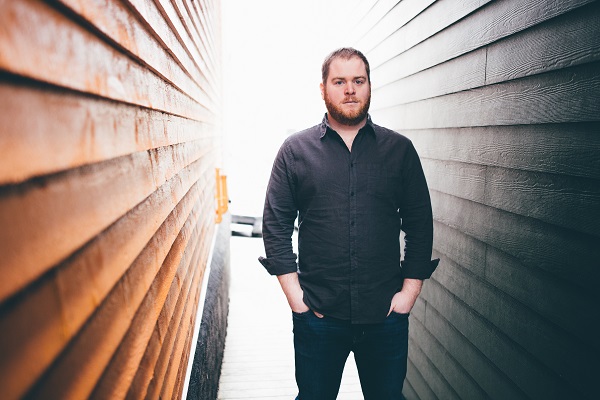If you are looking for an exquisite album of music, perhaps to provide just the right accompaniment for that last summer drive, look no further than Matthew Byrne’s “Horizon Lines,” out just today.
It must be said at the outset that while Matthew Byrne’s guitar playing is terrific, his voice is a completely captivating instrument. Newfoundland-based band The Once tweeted earlier this week:
Ha. Now you know who can sing the phone book? @mattbyrneNL. We heard it and it was ridiculous how good. Glad you came. https://t.co/OuK4kTdeZH
— the once (@theonceband) August 7, 2017
Yep, he really could. But rest assured, this album, Byrne’s third, is definitely not the phone book. This absolutely beautiful project, a mix of traditional tunes and self-penned songs, has provided the perfect soothing soundtrack for my travels this week.
The project opens with a lovely rendition of “Long Years Ago,” a sea tale with plenty of great accordion (and tenor banjo, to which I admit I’m partial) and harmony vocals from fellow Newfoundlander Teresa Ennis. Next up is a gentle rendition of “River Driver,” a delightful surprise to me, accustomed as I’ve been to Great Big Sea’s slightly more uptempo take on the song. The spare arrangement that Byrne gives the song here really opens the tune up and gives that voice plenty of space to shine.

“The Woods of Truagh” is the first of two unaccompanied songs on the album (“Jim Harris,” which closes the album, is the other), and Byrne’s voice is sufficiently captivating that he carries both off beautifully. Trust me, you won’t even miss the instruments, and it’s frankly a pleasure to hear a capella singing as he tells the tale of the Battle of Benburb (1646). (I admit to some pleasure at seeing my English husband squirm a bit at the line about England’s flag going down.)
“Wedding Waltz,” composed by Byrne, is a gorgeous instrumental featuring his Dardanelles bandmate Emilia Bartellas on fiddle and Craig Young on dobro (another instrument that can instantly reduce me to a puddle); as much as I enjoy Byrne’s singing, I could easily revel in an entire album of instrumentals like this one. “Adelaide,” the second song penned by Byrne, tells the story of an English naval officer who met and fell for a Newfoundland girl during a short stay in St. John’s, but lost track of her some months after – and wondered ever after what had become of his love. Matthew’s father Joe makes a delightful appearance late in the album on “Kitty Bawn O’Brien,” a gorgeous tune of lost love.
Even if you are not overly familiar with – or not particularly fond of – traditional music, I strongly encourage you to give this album a listen. Matthew Byrne’s voice will captivate you, and the strength of the songs will also prove entrancing. Highly, highly recommended.
~ L
Photo credit: Chris LeDrew


